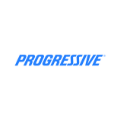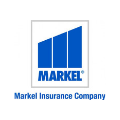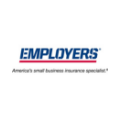Get A Quote Now: RV Insurance Coverage in San Diego & California
Custom Created RV Camper Insurance That Fits Your Budget & Your Needs
Herriott & Mijailovic is a boutique insurance agency that helps RV owners from San Diego and the state of California find the right coverage for their home away from home. Our boutique agency provides a variety of policy options to cover specific circumstances of motorhome owner’s lifestyle, whether you use your recreational vehicle for exploring the roads less traveled (part-time RV insurance) or use it as a permanent residence (full-time RV insurance). Specialty RV coverages include motorized RV insurance, motorhome insurance, towable RV insurance, RV liability coverage, RV comprehensive and collision, vacation liability, windshield coverage, and other related protections.
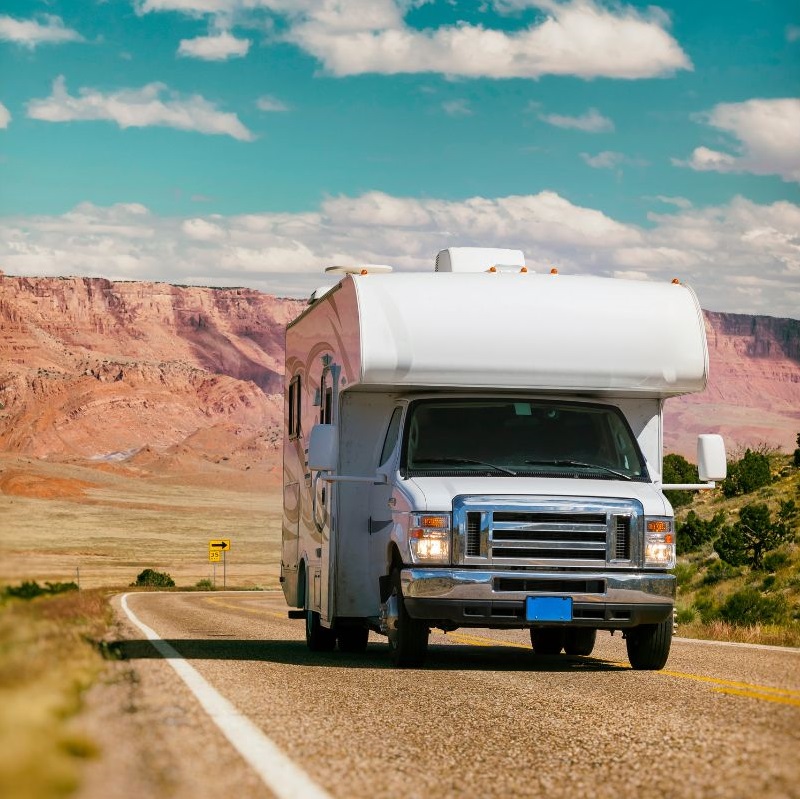
H&M can ensure the safety of you and your camper by offering comprehensive coverages with rich features for every type of recreational vehicle, including state-of-the-art Class A motorhomes, pop-up campers, travel trailers, B-vans, Class C RVs, toy haulers, fifth wheels, and other types of mobile homes. If an accident occurs, such as property damage, theft, bodily injury, or vandalism, you can rest assured your vehicle and the passengers are well protected.
With over 50 years of combined experience and collaboration with notable national suppliers like Safeco, Nationwide, The Hartford, and Progressive, we have the expertise and tools to find the most comprehensive coverage for your needs. By shopping from multiple carriers, we can get you the policy you need at a rate that fits both your preferred budget and your RV lifestyle. Over the years, we have honed our skills and promoted a highly personalized client approach. Today, we are a respectable insurance agency in San Diego, known for low rates and smooth claim handling. To find an RV coverage that works best for you, contact our agents today at (619) 296-0005 or fill out a short online form.
What Is RV Insurance?
Although RV insurance concept may seem similar to auto insurance at first glance, there are a lot of differences between the two. RVs, campers, and trailers need custom-tailored policies that will offer the same benefits as car insurance but with expanded coverage based on unique risks recreational vehicles are facing.
If you are involved in an accident, RV policy can help cover the costs of body injury or property damage costs. When choosing the coverage for travel trailers, it is important to decide what liability limits you feel most comfortable with. It is recommended that the liability limits be determined based on your needs and requirements so that you can get maximum protection.
There are two types of coverages for homes-on-wheels:
- Motorhomes (motorized RVs) coverage – Motorhomes are large, motorized vehicles that do not have to be towed. They are built on a long-wheelbase and are self-propelled. The three main types of drivable RVs are Class A RVs (bus shaped motorhomes), Class B RVs (camper vans), and Class C RVs (mini motorhomes).
- Towable RVs coverage – Towable Recreational vehicles are those that cannot be driven and must be towed, such as pop-up campers, travel trailers, 5th-wheel home trailers, truck campers, and so on.
What Is Covered?
Regardless of the type of recreational vehicle you own, RV insurance serves to protect the passengers and the vehicle if involved in accidents. In addition, you can also obtain coverage for your personal belongings inside the vehicle, liability coverage, medical coverage, emergency expenses, and so on. The coverage will depend on the type of policy you purchase. Available coverages include:
- Bodily injury you cause to someone else while driving your RV
- Bodily injury to yourself due to accident with UIM (uninsured motor vehicle)
- Motorhome damage caused by accident
- Vandalism, theft, or fire while your RV is stored
- Emergency road assistance
Standard RV Insurance Coverage
There are a few coverages designed to address potential risks and losses that RV owners may encounter. Below, you can find more information on the standard RV insurance types.
Comprehensive policy
Comprehensive coverage covers you for situations that are outside your control, such as theft, fire, vandalism, windshield damage, weather-related incidents, and collisions with animals. For example, if your camper suffers damage due to hail while stationed at a campsite, comprehensive coverage will pay for the necessary repairs after you pay the deductible. Comprehensive policy is recommended for: Class A motorhomes, Class B camper vans, Class C motorhomes, travel trailers, pop-up campers.
Collision coverage
This coverage helps pay expenses of repair or replacement of your motorhome in case it gets damaged in an accident that involves an object or another vehicle, regardless of whose fault it is. Collision coverage is recommended for: Class A motorhomes, Class B camper vans, Class C motorhomes, travel trailers, pop-up campers.
Liability coverage (bodily injury and property damage)
Liability coverage for motorhomes is required by law in most states. It helps pay the cost of repair of property damage and medical bills for bodily injuries. However, when it comes to travel trailers, you will not be able to obtain the policy for it, as it is pulled by a vehicle and cannot be driven. You will have to purchase liability coverage for the vehicle that tows the trailer. Here’s an example of how liability coverage for RV works: If you cause an accident while driving your RV where another driver is injured and his vehicle damaged, liability insurance pays medical bills and repairs up to policy limits. Liability coverage is recommended for: Class A, Class B, and Class C motorhomes and truck campers.
Get a Quick Quote
Medical payments
This type of coverage aids in paying medical expenses for you and your passengers as a result of accident your motorhome, regardless of fault status. For instance, if your passenger is injured while travelling in your motorhome, this type of coverage will settle hospital bills, even if you caused the accident. It is important to note that medical payments coverage doesn’t apply to travel trailers (towable RVs). Medical payments coverage is recommended for: all types of RVs.
Uninsured motorist coverage & underinsured motorist coverage (UM/UIM)
UM/UIM policies are designed to protect you if you get hit by a motorist who either has no insurance at all (Uninsured motorist coverage) or a motorist who does not have enough coverage (underinsured motorist coverage). UM/UIM can cover expenses for RV damage, medical bills, or lost wages, up to your policy limits. Note that about half the states require you to obtain at least one of these policies. UM/UIM coverage is recommended for: all types of campers.
Additional RV Coverages
Beyond the basic policies, our insurance company also offers a range of optional RV coverages you can purchase at additional cost to further customize the coverage and maximize protection based on your specific needs. The most popular optional coverages are:
Total loss replacement
If your camper is totaled after collision, this policy will help pay for the replacement of your vehicle with a new one, minus your deductible. In order to get the replacement, certain conditions have to be fulfilled first – your RV must be five years old or less. In case it is older than that, you will be paid the amount that is noted in your policy. Total loss replacement coverage is recommended for: travel trailers, fifth-wheels, pop-up campers, and truck campers.
Windshield/glass coverage
With this coverage, the insurance will help pay for the replacement of the damaged windshield or glass. Windshield/glass coverage is recommended for: Class A motorhomes, truck campers, travel trailers, Class B RVs.
Replacement cost/personal effects coverage
If your personal property inside a motorhome gets damaged due to a covered collision or comprehensive loss, this coverage may help pay costs up to the limits stated on the policy. Replacement cost/personal effects coverage is recommended for: Class B camper vans, pop-up campers, truck campers.
Emergency expense
If your RV becomes disabled, due to a covered loss, at location that is over 50 miles from your residence, this coverage helps cover expenses for the transportation, lodging, food, rental car or fuel costs up to a certain limit, while your recreational vehicle is being repaired. Emergency expense coverage is recommended for: Class A motorhomes, fifth-wheelers, pop-up campers, truck campers.
Vacation liability
The main purpose of this additional coverage is to protect against camping area damages, where a lot of accidents can happen, such as oil or fuel leaks contaminating the soil at campsite. This policy helps pay for medical bills if someone gets injured in or near your camper while it is parked at a campsite. Vacation liability coverage is recommended for: Class A motor homes, Class C RVs, travel trailers, fifth-wheelers.
Specialized equipment coverage
This coverage is designed for customers who want to add protection for their RV’s specialized equipment, such as solar panels or custom wheels. Specialized equipment coverage is recommended for: recreational vehicles with special devices or gear.
Permanent attachments
This is a depreciation-free coverage that serves to insure permanent RV attachments like awnings. Recommended for: all types of RVs with permanent attachments installed.
Purchase price guarantee coverage
You can expand your basic coverage in the first 9 model years that pays for the replacement of the totaled RV, up to the original purchase price. Purchase price guarantee coverage is recommended for: all types of campers.
Specialized coverage options
Other coverages you may want to consider include pet coverage, Mexico physical damage coverage, basic economy coverage, fire department coverage, locksmith coverage, etc.
Is It Compulsory to Purchase Camper Insurance?
Most states require you to purchase a policy that includes liability insurance at minimum. RV insurance is especially recommended for full-time drivers. Since they spend most of the time in their RV, they are more likely to suffer an accident than the part-timers.
There are certain circumstances where you are obliged to purchase an RV policy:
- Your RV is your permanent residence – If you live in your RV, you must buy this policy.
- You need financing for your RV – Typically, the lenders will require you to buy insurance policy because they want to protect their investment.
- You own a rental RV – Check with your rental dealer whether this policy is already included.
In some states you can choose whether you want to purchase the policy or not, providing you own:
- A towable RV
- A camper without any financing and use it for towing only
If you are unsure whether to purchase a policy or not, contact our insurance agent.
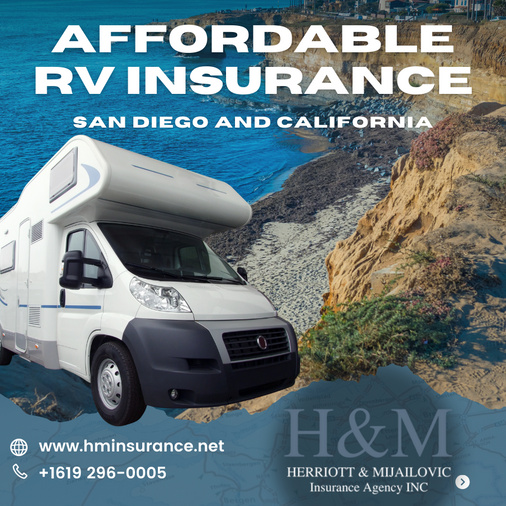
How Much Does It Cost
The exact cost of camper insurance depends on several important factors that have to be taken into consideration, which include:
- Motorhome class – The type of vehicle determines the price. Larger vehicles that require more maintenance will have higher insurance premiums than lower class motorhomes. Average annual price for campers starts at $250, while class A motorhome’s premium is approximately $2,500 a year. Speak to an experienced insurance specialist to help you with correct pricing.
- Usage – If used as a permanent place of residence, the cost will be higher as it will include coverage for both the engine and personal property.
- Driving record – Similar to auto insurance, your driving record (driving history, past claims, and accidents) determine how high your premium will be. Clean driving record typically means significant discounts.
- RV driving experience – Experienced RV drivers typically have lower premiums.
- Deductibles – Another important aspect that determines the price are deductibles and how much you will pay before the policy is activated. When deciding on deductibles, it is best to find the right balance so that you avoid paying too much for either the policy or the deductibles.
- Additional Coverages – Optional coverages also impact the total price. Speak to your insurance agent to see which coverages are necessary and which might not be needed, based on your particular needs.
- Age, Marital status, & Insurance credit score – These are additional factors that can also influence the final rate.
How Can I Lower the Price On RV Insurance Policy?
There are a few ways to possibly lower the cost of RV insurance rate:
- Multi-policy holders – When you bundle your RV insurance, you usually get a discount. The more policies you hold, the more discounts you will get to enjoy.
- Full payment – Upfront payment in full typically means discounted rates.
- Paying on time – This is the easiest way of earning discounted prices.
- Quote in advance – Some suppliers offer lower rates for quoting in advance.
- Original owners – If you are an original owner and also carry RV comprehensive and collision coverage, you can get rate reduction.
- Responsible driver – Some insurers mark down premium rates for RV drivers that had no accidents in the past three years.
- Claims free record – If you haven’t had any claims, you can receive an automatic discount upon policy renewal.
- Paperless documentation – Going paperless can also mean lower premium rates with some suppliers.
Why Choose H&M Agency?
Herriott & Mijailovic is a family owned insurance company from San Diego, famous for our insurance expertise in both commercial and personal insurance. Our mission is to provide quick and easy service at competitive rates. Our priority is protecting you, your loved ones, and your property so that you can have peace of mind and a stress-free lifestyle.
- 50 years of combined experience
- FREE, no obligation quotes
- Affordable insurance rates & discount options
- Independent insurance agency with customized coverage options
- Licensed to sell major carriers’ policies (Travelers, Safeco, CIG, First American, Net, etc.)
- 100% client-oriented approach
Frequently Asked Questions
Typically, the insurance policy bought in the USA is not valid when you cross the border. There are, however, exceptions, so you should check with your agent whether it’s valid in other countries, too. Most USA coverages are not valid in Mexico, so if you plan on visiting Mexico with your camper, make sure you purchase the appropriate policy that will protect you, your passengers, and your property while on the road.
Motorhome insurance is intended for the recreational vehicles that you can drive (Class A, B, or C motorhomes). It provides coverages for the vehicle and liability that might occur while you are on the road. Travel trailer insurance is coverage for trailers that are towed behind your vehicle since they do not have the engine. It may also include liability protection. So, the main difference is whether your camper has its own engine or not.
The main difference lies in what caused the damage. Collision insurance covers collisions with vehicles or objects (tree, guardrail, fence, tree). Comprehensive insurance covers your travel trailer or camper from events that go beyond your control and are not the result of collision. These circumstances include hail, fire, lightning, vandalism, theft, hitting an animal, etc.
Although there is no way for you to predict when certain problems with your recreational vehicle will arise, you can prevent them from happening by performing a professional inspection once a year. To protect larger issues from occurring, you should regularly check your tires and keep them ideally inflated, replace old sealants once or twice a year to avoid roof or window leaks, and inspect batteries frequently for any signs of moisture to avoid corrosion.
Certainly! Conventional travel trailers, cargo, and horse trailers can also be insured. Your regular auto insurance does not cover the trailer in case of vandalism or theft, so you will need to purchase a separate policy to cover physical damage and liability coverage to cover the injuries.
If your recreational vehicle is towed and not drivable, in most cases you are not obligated to purchase special RV insurance. However, if your RV has its own engine, you are required by law to have insurance on it. Most states ask for at least minimum liability coverage.



